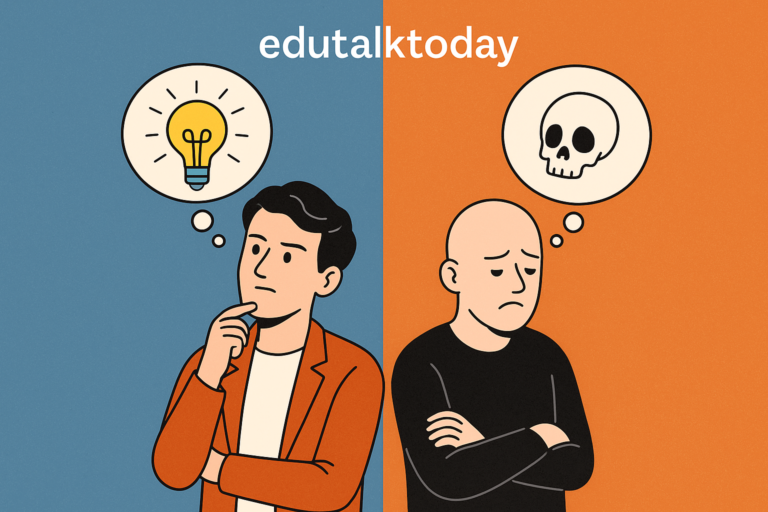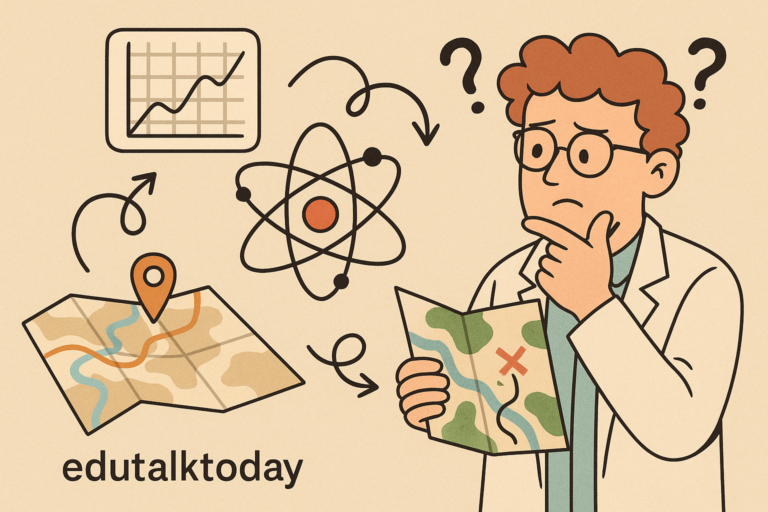Does History Move Toward Freedom or Fragment into Contingent Postmodern Narratives
Does history have any meaning at all, or is it just one thing after another? That’s the kind of question that keeps me awake at night (and I’m guessing if you’re here, you’ve thought about it too).
Some people, like the German philosopher G.W.F. Hegel, believed history has a clear direction—a story of human beings slowly but surely marching toward freedom. Others, especially in the modern age, aren’t so sure. They argue history is messy, unpredictable, and maybe even meaningless.
Honestly, I get both sides. There’s something comforting about believing everything is part of a bigger plan.
At the same time, when I think about all the wars, injustices, and random twists of fate that shaped the world, it’s hard not to question that idea. Let’s dig into how Hegel saw history and why his view still sparks debate today.
Hegel’s idea of history as progress
Hegel wasn’t shy about making big claims. He believed history wasn’t just a random collection of events but a rational process unfolding over time. In his mind, it was almost like history had a personality—something he called “Spirit” (or Geist in German). This Spirit wasn’t spooky or mystical in the ghostly sense. Instead, it represented the collective unfolding of human freedom and reason. Hegel thought every major event, even the ugly ones, played a part in moving humanity forward.
Think about it this way: to Hegel, history is like a giant story with a plot. Each chapter introduces new struggles, but those struggles eventually push us to higher levels of understanding. Even conflicts and failures weren’t meaningless detours—they were necessary for growth.
The long road to freedom
One of Hegel’s most famous ideas is that history is really about the progress of freedom. He argued that in the ancient world, only one person (like a king or emperor) was truly “free.” Everyone else had to obey. Later, societies like ancient Greece and Rome started recognizing that some people—say, citizens—deserved freedom, but not everyone. Eventually, with the rise of modern states and democratic ideas, more and more people came to be recognized as free individuals.
If that sounds a little abstract, think of the American and French Revolutions. For Hegel, events like these weren’t just political shake-ups; they were milestones in humanity’s journey toward recognizing that all people have the right to freedom. Even if those revolutions were messy, incomplete, and at times hypocritical, they still represented a step forward in the larger story.
The “cunning” of history
Here’s where Hegel gets both fascinating and a bit unsettling. He believed history uses what he called the “cunning of reason.” Basically, individuals and nations might pursue their own selfish goals, but unknowingly they end up serving the bigger plan of Spirit. For example, Napoleon wanted power and glory, but in Hegel’s eyes, Napoleon’s conquests spread revolutionary ideas across Europe, forcing old monarchies to adapt or collapse. So even though Napoleon himself wasn’t thinking about humanity’s liberation, his actions still contributed to it.
This raises a pretty wild thought: maybe history doesn’t care about our personal intentions. We might just be pieces in a much bigger puzzle we don’t fully see.
Why this idea was so powerful
When you look at history through Hegel’s lens, it can feel strangely reassuring. Wars, revolutions, upheavals—none of it is meaningless. Instead, it’s all part of a long journey toward something better. That’s a comforting thought, especially if you lived in a turbulent time (and Hegel sure did, during the Napoleonic wars).
And honestly, it’s easy to see why his vision influenced so many later thinkers. Karl Marx, for example, borrowed Hegel’s idea of history moving in stages but swapped “Spirit” for material conditions like class struggle. Even today, people who talk about the “arc of history” bending toward justice (like Martin Luther King Jr. famously did) are echoing a very Hegelian way of thinking.
But let’s pause and be real
As inspiring as Hegel’s view is, I can’t help but raise an eyebrow. Was history really just a smooth path toward freedom? Tell that to people who lived through colonialism, slavery, or the Holocaust. From their perspective, history didn’t look like a noble march toward progress. It looked like chaos and cruelty.
Still, here’s where Hegel might push back. He’d probably say, “Yes, those tragedies happened, but they were part of a painful process that eventually moved humanity forward.” And honestly, there’s something both compelling and frustrating about that. On one hand, it frames suffering as part of a bigger story. On the other, it feels like it downplays the reality of those who suffered.
A modern example to chew on
Take the civil rights movement in the U.S. During the 1960s, it wasn’t obvious to everyone that those struggles were “progress.” To many, it was chaos, protest, resistance. But looking back, we can see how those battles pushed the recognition of freedom forward. That’s very Hegelian: the turmoil wasn’t meaningless—it was necessary.
But again, not everyone buys this. Some would argue that even now, inequality and systemic injustice show that history isn’t on a guaranteed path toward freedom. Which, as we’ll see later, is exactly what postmodern critics latch onto.
For now, though, the takeaway is this: Hegel dared to see history as more than random events. He believed it was a rational story, moving step by step toward greater freedom. Whether or not we agree, his vision shaped how generations after him thought about the meaning of history. And that’s worth pausing on before we dive into the skeptics who said, “Hold up, not so fast.”
Postmodern critiques of Hegel
Here’s where things get really interesting—and a little chaotic. If Hegel saw history as this neat, rational story heading toward freedom, postmodern thinkers basically came along and said, “Nope, not buying it.” They weren’t just disagreeing on small points. They rejected the whole idea of history as a single, meaningful narrative.
Now, I know “postmodernism” can sound like an intimidating buzzword, but at its core, it’s a way of questioning whether big, sweeping explanations about life, society, or history actually hold up. Jean-François Lyotard, one of the major voices here, defined postmodernism as “incredulity toward metanarratives.” That’s just a fancy way of saying: stop believing in those giant stories that claim to explain everything. And Hegel’s idea of history as progress? That’s the ultimate metanarrative.
Let’s break down what these critiques look like in everyday language.
Suspicion of big stories
The first issue postmodern thinkers raise is that grand narratives hide as much as they reveal. If you tell me “history is about freedom,” that sounds great—but what about all the people left out of that story? Women, Indigenous communities, enslaved people—whole groups were sidelined while others claimed they were marching toward liberty.
Think about how colonial powers justified their actions. They often claimed they were “bringing civilization” to the places they conquered. From Hegel’s perspective, some people read this as part of the march of progress. From a postmodern perspective, it’s a convenient excuse for domination.
Many histories, not just one
Postmodern critics also argue there’s not just one history—there are many histories. A farmer in India, an enslaved person in the Caribbean, and a factory worker in Manchester during the 1800s all experienced history very differently. So how can we flatten all of that into one “story” of progress?
This point feels especially powerful today, when we’re so much more aware of marginalized perspectives. Museums, films, and books now highlight voices that used to be ignored in the official record. That shift is postmodernism in action—it’s pushing us to see that history isn’t a single highway; it’s a messy web of side roads, dead ends, and hidden trails.
Power and knowledge
Here’s where Michel Foucault comes in. He argued that history is often less about truth and more about power. The way we tell history reflects who gets to decide what counts as important. For example, school textbooks once celebrated colonial explorers as heroes while barely mentioning the destruction they caused. That wasn’t an accident—it reflected the power structures of the time.
Foucault makes you wonder: when we say “this is the history,” are we really talking about truth, or are we just repeating the version of events that benefits those in charge?
No set destination
Another major critique is that history doesn’t have a goal. Hegel thought we were all heading toward more freedom and rationality. Postmodernists roll their eyes at that. They argue the world doesn’t have a built-in purpose. Events happen, but they don’t add up to some neat ending.
It’s a bit like saying life is more like jazz improvisation than a carefully written symphony. Things happen, people react, and sometimes patterns emerge—but there’s no master plan guiding it all.
Chaos and contingency
Finally, postmodernism highlights the randomness of history. A single accident or coincidence can change everything. What if Franz Ferdinand hadn’t been assassinated in 1914? Would World War I have erupted the same way? What if the internet hadn’t taken off in the 1990s? Would globalization look completely different?
Hegel might say those events were part of the necessary unfolding of Spirit. A postmodernist would say, “Nope, just chance.”
Why this matters for us
I get why postmodern critiques hit hard. They push us to question feel-good stories about progress that might gloss over real suffering. They also open space for voices that were silenced in Hegel’s sweeping tale.
At the same time, living without any story of history can feel unsettling. If everything is fragmented and random, how do we make sense of our lives in the bigger picture? That’s the tension: postmodernism is great at breaking down old certainties, but it sometimes leaves us wondering, “Okay… so what now?”
That’s where I think the conversation between Hegel and the postmodernists gets especially juicy—because maybe we need both.
Between meaning and skepticism
So here’s the big question: do we have to choose between Hegel’s faith in progress and postmodern skepticism? Or is there a way to stand somewhere in the messy middle? Personally, I think the middle is where things get the most human.
The pull of meaning
Let’s be honest—it’s hard not to want a story. Humans are natural storytellers. We crave patterns and direction because they give us hope and help us make sense of the chaos. When Martin Luther King Jr. said, “The arc of the moral universe is long, but it bends toward justice,” he was channeling a very Hegelian belief that history, for all its setbacks, moves toward something better. And that message mattered—it gave people courage to keep fighting for civil rights.
In that sense, believing in progress can be more than a philosophical claim—it can be a practical tool. If you think your struggles are part of a bigger journey toward freedom, it’s easier to keep going.
The pull of skepticism
But then, there’s the postmodern voice in our heads saying, “Wait a second—what about when things don’t get better?” Think of the 20th century: two world wars, genocide, the invention of nuclear weapons. That doesn’t exactly scream “progress.” And today, with climate change, rising authoritarianism, and economic inequality, the idea of a guaranteed path toward freedom feels shaky at best.
Skepticism reminds us not to get complacent. If we just assume history is on our side, we might ignore injustices happening right now. Postmodern critiques keep us alert to the fact that progress isn’t automatic—it’s something people have to fight for, and even then, it can be fragile.
Holding both together
So maybe the trick is learning to hold onto both perspectives. We can appreciate Hegel’s belief that history has meaning without blindly accepting it. At the same time, we can respect postmodernism’s warning about power and hidden voices without falling into total despair.
Think of it like this: history isn’t a straight line or a pure mess—it’s a spiral. Sometimes it feels like we’re going in circles, repeating old mistakes. But every turn of the spiral also brings new possibilities. That metaphor helps me balance optimism with realism.
Examples in today’s world
Let’s look at technology. Some argue that smartphones and the internet represent “progress”—more connection, more knowledge, more opportunity. That’s the Hegelian lens. But from a postmodern view, those same technologies spread misinformation, deepen surveillance, and reinforce inequalities. Which one is true? Probably both.
Or take the global movement for climate action. Hegel might say it’s another step in humanity’s growing awareness of our shared freedom and responsibility. Postmodernists might point out how different countries, corporations, and communities experience that struggle in radically different ways. Again, both views add something important.
Living with uncertainty
At the end of the day, maybe the real lesson isn’t about picking a side but learning to live with tension. We need stories to keep us moving forward, but we also need critiques to keep those stories honest. It’s like driving a car: the gas pedal (Hegel’s optimism) gets you moving, but the brakes (postmodern caution) keep you from crashing.
And honestly?
That feels like a pretty good way to approach history—and life.
Final Thoughts
So, does history have meaning? Hegel would say yes, it’s a grand story of freedom. Postmodern thinkers would laugh and say no, it’s a patchwork of chaos and power struggles. I think the truth is somewhere in between. We can find meaning in the patterns of the past without pretending those patterns tell the whole story. We can use hope in progress as fuel while never forgetting the messy, unfair, and often random realities that shape human lives.
History, in other words, is both a guide and a warning. It shows us what’s possible—and what we should never take for granted.





